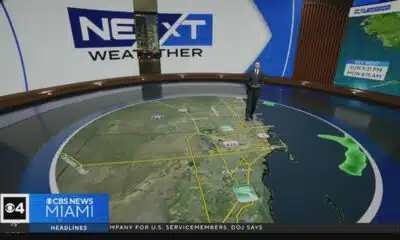(The Center Square) – A new marketing report on the Washington Commanders proposed stadium and development says the project will lead to $24.2 billion in total economic output over 33 years.
The group that produced the report, however, is regularly discredited by economists who study the impact of sports stadiums
The report from marketing firm Conventions, Sports and Leisure estimates the project will cost $8 billion, with $3.2 billion a new stadium on the site of the former RFK Stadium over a three-year construction period and $4.8 billion for the surrounding mixed-use district over a seven-year span.
The mixed-use portion of the project is planned to include 8.1 million square feet of development. Also, it will have approximately 6,477 multi-family housing units, 519,200 square feet of office space, 376,300 square feet of restaurant and retail space, 800 hotel rooms, 8,200 parking spaces, a sportsplex, supporting infrastructure and green space.
Despite advocates saying the team would be mainly paying for the project, the plan actually calls for more than $2.5 billion worth of taxpayer subsidies.
The economic impact report says the project will lead to $5.1 billion in taxes, including $1.6 billion in property taxes from the mixed-use district, $2.3 billion in sales and ticket taxes, $735.1 million in income taxes and $452.8 million in hotel taxes.
Economists who have extensively studied the impact of sports stadiums have long said that CSL’s reports are inaccurate and misinformation.
The firm has been referred to as the “Wile E. Coyote of the sports stadium racket” by publicly financed stadium blog “Field of Schemes,” written by Neil DeMause. CSL is owned by Legends Marketing, a joint venture involving the New York Yankees and the Dallas Cowboys.
“Viewing what ‘economic impact’ consultants do to be economics is like considering horoscopes to be astronomy,” economist J.C. Bradbury of Georgia’s Kennesaw State University wrote. “Newspapers are smart enough to put horoscopes next to the comics and Dear Abby, while economic impact ‘studies’ get banner headlines on the front page.”
The reports are often criticized because they do not include crowding out of other visitors on event days, diverted spending from other events and fail to use basic economic principles such as the broken window fallacy, which states that money spent to repair broken items is not a net benefit.
Bradbury previously told The Center Square that CSL is hired by a group looking to push public funding for a project and those numbers are used to tell constituents about how good a project is for a community, even though the actual economic numbers do not show that.
“It’s resulted in a larger cottage industry for giving out tax incentives in general,” Bradbury said. “These are totally fake and they mean nothing but they are required to provide some sort of guidance, even though they don’t.”








































